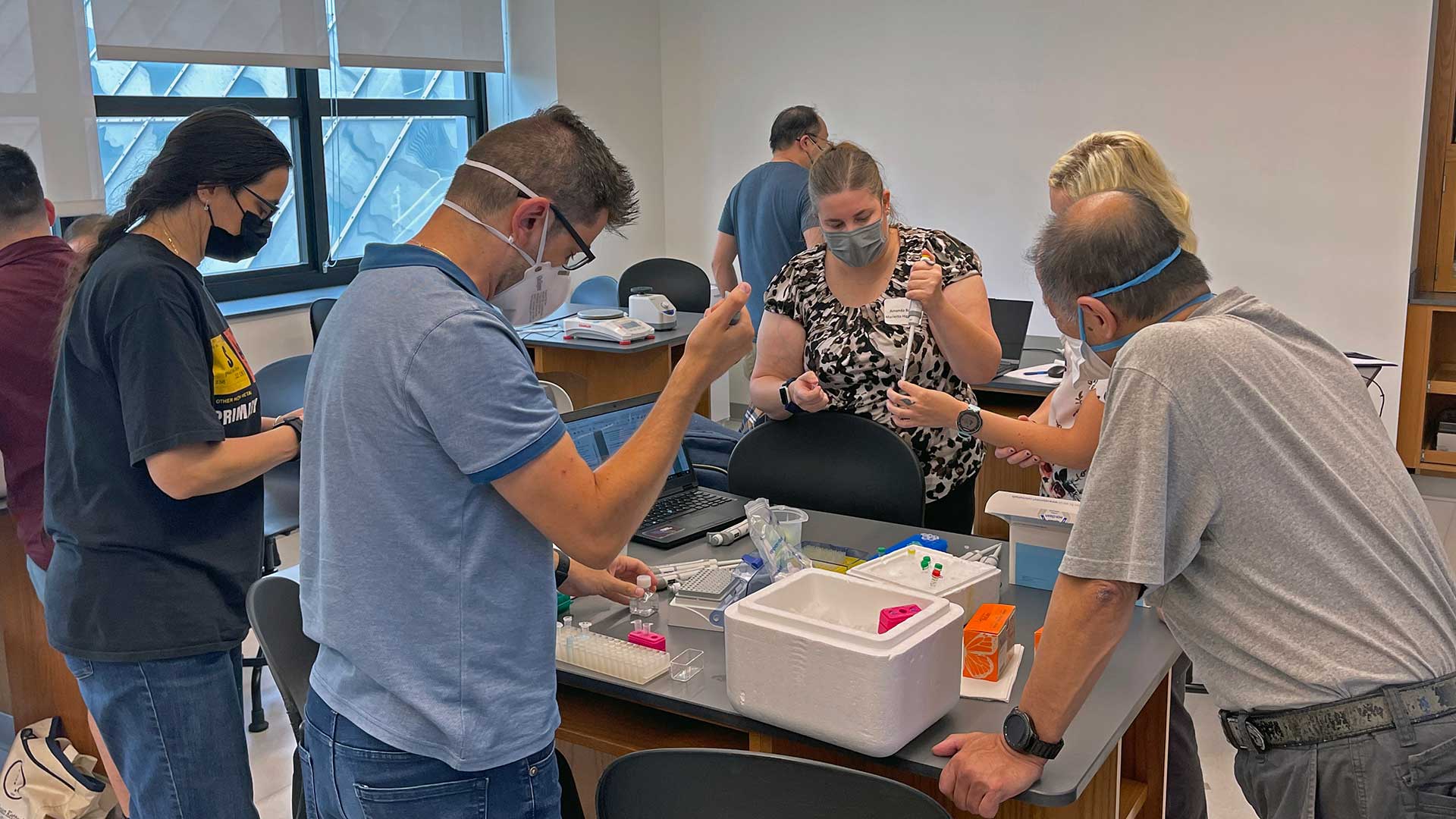Diseases can spread rapidly, but now, so can the knowledge needed to stop them. A new information-sharing platform seeks to help slow the spread of infectious diseases. It’s called the Pathogen Data Network (PDN). And it just might help stop the next pandemic before it can start.
Cold Spring Harbor Laboratory’s DNA Learning Center (DNALC) is part of a global consortium of research institutions that have received $2.7 million from the National Institute of Allergy and Infectious Diseases to build the PDN. Their mission: improve pandemic response worldwide by providing open access to shared resources and data on all pathogens affecting humans.
One key component is a new outreach and training program from the DNALC. The program will train undergraduate educators in disease-tracking techniques that could help prevent future pandemics. Importantly, it will focus on institutions in those communities often hit hardest by public health crises.
“This partnership is a natural fit for us,” says DNALC Assistant Director of Diversity and Research Readiness Jason Williams. “We bring the latest technologies and teaching approaches for working with DNA into classrooms around the world. Sharing scientific knowledge and resources worldwide will empower future generations to respond to potential outbreaks sooner, thereby saving lives.”
The PDN builds upon and expands the successful European COVID-19 Data Platform. Led by the Swiss Institute of Bioinformatics and the UK’s European Bioinformatics Institute, the PDN also includes organizations in South Africa and throughout Europe.
Written by: Nick Wurm, Communications Specialist | wurm@cshl.edu | 516-367-5940
